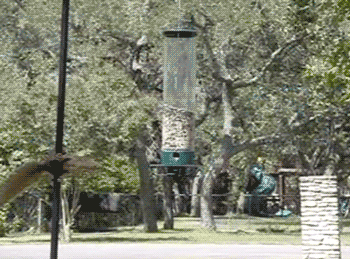By: Barbara G. Hager

In your life as a Board member you have probably heard something like this from an unhappy unit owner: “You work for me! You owe me a duty to do what is best for me!” Well, no. None of that is true and here’s why.
As a Board member, your first duty is a duty of ordinary care and loyalty to the Association. Although the Association is “made up” of unit owners, it is not the same thing to say your duty is to individual unit owners. In fact, Connecticut courts have confirmed that Board members do not generally have a duty to the individual unit owners. Your loyalty and ordinary care duties are to the Association as a whole. And yes, it is a fine line to walk, because many or even most times, what is good for the Association will be, in fact, good for the unit owners. However, that is not always the case.
Take an example. Suppose the Board of Directors decides to enact a rule totally prohibiting bird feeders because of the mess they make on the ground and their ability to attract vermin like squirrels. The Board decides that bird feeders are unhealthy and bad for the Association, so they ban bird feeders.
This decision is well in keeping with the duties of board members to the Association and to do what is best for the Association as a whole. But of course, there will be the individual unit owner who is a bird lover – birds are her life – who will be very upset about this new rule and may even say, “You work for me! I don’t like this, you can’t do this to me!” Yes, you can.
Decisions which are best for the Association may in fact not be the best for some individual unit owners. Yet the Board must stand firm and remember their highest duty – to the Association. Exercising the duty of care means the decision by the Board was in good faith; made with the prudence an ordinary person would take in like circumstances; and made by directors who reasonably believe the decision to be in the best interests of the Association.
There are some duties the Board owes to individual unit owners. The Board in its enforcement and enactment of rules cannot act in an “arbitrary or capricious” manner. The decision of the Board – say, for example, the new rule – must have some reasoning behind it and it must have a relation to the actual problem the Board is trying to solve. Decisions cannot be made on a whim. Back to our bird feeder example. If the Board made a rule that “Mrs. Jones in Unit 3 may not have a bird feeder” that would be arbitrary and capricious. It is not tailored to solve the problem for the Association as a whole, or for the health and safety of the community as a whole. Also, the Board as a whole must not act in a manner which violates the statutes of the Common Interest Ownership Act.
What about individual Board members? Don’t they have a personal duty? No, with some exceptions. The Board only acts as a Board. Decisions are of the Board, by the Board, not by individual Board members. Individual Board members of course may not act in a self-dealing manner by voting for something that will harm the Association but financially help themselves. Additionally, although it should not need to be said, individual Board members who commit crimes, such as financial fraud or theft from the Association, are not acting as a Board but individually. Where a crime is committed, there is no shelter from the Board, either as an excuse (the Board said it was OK) or via Association insurance coverage of a judgment, civil or criminal. Finally, the Board needs to be mindful that an enforced rule does not discriminate on the basis of race, religion, sex, nationality or family status.
Take a deep breath when a unit owner says “You work for me!” and remember your duty is to the Association, and for what is in the best interests of the Association.

